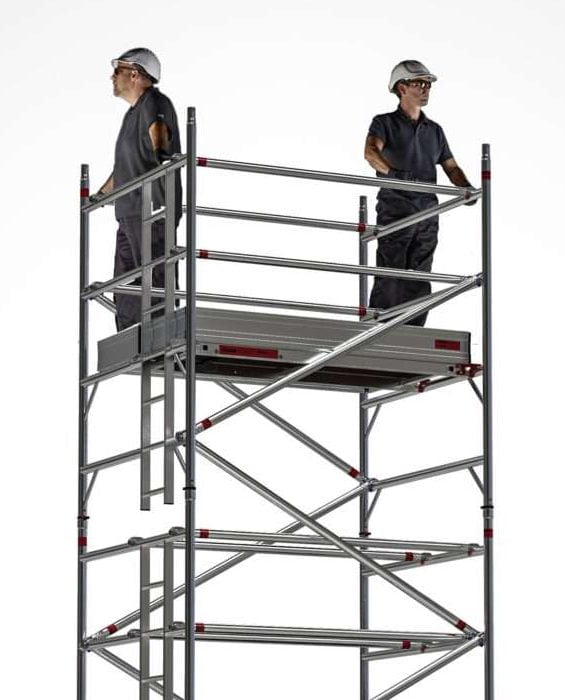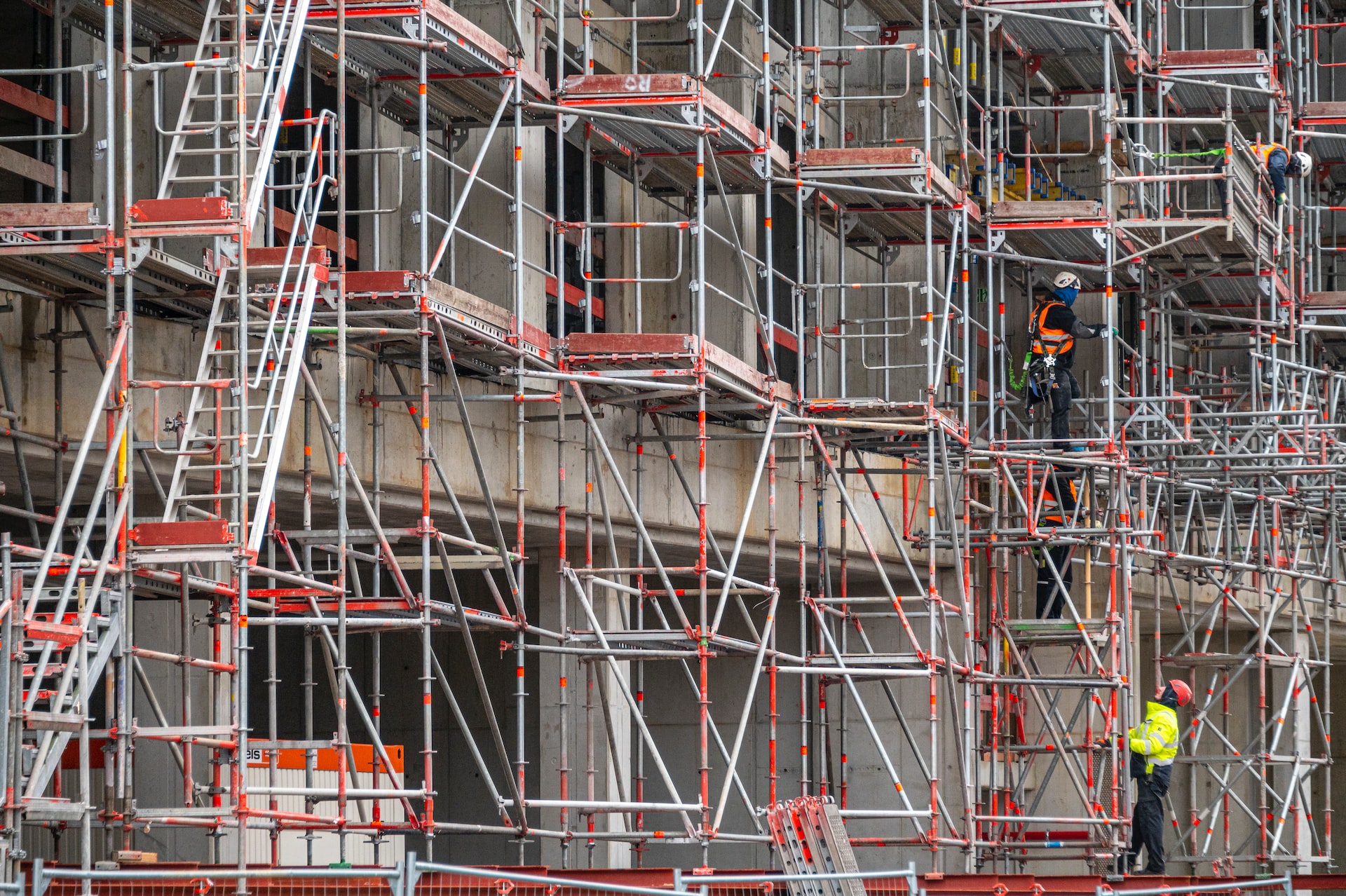Discovering the Various Kinds of Scaffolding Used in Building Projects
The construction industry counts greatly on numerous kinds of scaffolding to satisfy particular project requirements, each offering distinctive benefits and applications. Conventional frame scaffolding provides a sturdy structure for general tasks, while put on hold scaffolding is essential for deal with skyscraper structures. Other options, such as system and rolling scaffolding, provide to performance and flexibility, specifically. Additionally, the cantilever variant proves invaluable in metropolitan atmospheres where space is constricted. Understanding the subtleties of these scaffolding types is crucial for maximizing security and performance on construction websites, prompting a better examination of their special attributes and applications.

Conventional Structure Scaffolding
Typical structure scaffolding is just one of one of the most commonly used techniques in the building market due to its robustness and versatility. This system contains horizontal and vertical frames that are assembled to develop a secure platform for workers and products. The major parts include vertical articles, straight ledgers, and angled braces, which together give a solid structure that can sustain considerable loads.
One of the essential benefits of conventional structure scaffolding is its adaptability to numerous building tasks, ranging from household buildings to huge commercial structures. The modular layout permits easy setting up and disassembly, making it efficient for both temporary and long-lasting tasks. Furthermore, the system can be customized in elevation and size, accommodating various structure designs and website problems.
Safety is paramount in scaffolding applications, and typical framework systems are furnished with guardrails and toe boards to stop drops and make sure employee security. Furthermore, normal assessments and adherence to safety and security policies are crucial in keeping the honesty of the scaffold. In general, traditional framework scaffolding remains a basic selection in the construction industry, providing a trustworthy system for labor and improving general job effectiveness

Suspended Scaffolding
Suspended scaffolding offers an one-of-a-kind remedy for building projects that call for accessibility to elevated surface areas, especially in scenarios where typical framework scaffolding may be not practical. This sort of scaffolding is generally suspended from the roof or top degrees of a structure, utilizing a system of ropes, sheaves, and systems to create a working room that can be adapted to various elevations.
Among the main benefits of put on hold scaffolding is its flexibility. It can be conveniently rearranged or lowered to suit changes in building and construction needs, making it excellent for tasks such as window installment, façade job, and maintenance on skyscrapers. In addition, the marginal footprint of put on hold scaffolding allows for much better use ground space in urban atmospheres, where room is often restricted.
Safety and security is an important factor to consider in the use of suspended scaffolding. Generally, put on hold scaffolding offers a efficient and effective option for accessing hard-to-reach areas in different building and construction circumstances, improving both efficiency and security on site.
System Scaffolding
System scaffolding, typically considered as a contemporary solution in try here the scaffolding sector, is composed of pre-engineered elements that can be rapidly set up and adjusted for numerous building and construction jobs. Scaffolding. This kind of scaffolding is characterized by its modular design, which enables adaptability and effectiveness on job sites, suiting structural requirements and different heights
Generally made from high-strength steel or light weight aluminum, system scaffolding uses enhanced resilience and security. The elements consist of vertical articles, horizontal journals, and angled braces, which interconnect firmly, making sure a robust framework. The layout commonly integrates standardized installations, simplifying assembly and disassembly procedures, thus reducing labor time and prices.

Rolling Scaffolding
Moving scaffolding is a functional alternative to traditional fixed scaffolding, designed for mobility and ease of usage on building and construction websites. This sort of scaffolding contains a platform supported by frames with wheels, permitting employees to quickly move it as needed. The mobility attribute significantly enhances performance, as it decreases downtime linked with constructing and dismantling repaired scaffolding.
Normally built from lightweight materials such as aluminum or steel, rolling scaffolding offers a durable yet portable solution for tasks calling for constant repositioning - Scaffolding. It is specifically beneficial in tasks such as painting, drywall setup, and electrical job, where accessibility to numerous elevations and places is necessary
Safety and security is vital in rolling scaffolding style, with features such as securing wheels to stop unintentional motion when being used, and guardrails to shield workers from drops. Furthermore, numerous versions are adjustable in elevation, that site fitting numerous job requirements.
Cantilever Scaffolding

The design of cantilever scaffolding normally includes utilizing brackets or arms anchored to a building or framework, making it possible for the system to expand exterior securely. Security is vital; therefore, these scaffolds need to be crafted to stand up to different tons and environmental conditions. Regular inspection and upkeep are necessary to ensure architectural honesty and worker safety.
Cantilever scaffolding is preferred for its convenience and effective use of room, making it a preferred option in urban settings where area constraints are common. In addition, it helps with easier access to high elevations, inevitably adding to the overall performance of building projects. Just like all scaffolding types, appropriate training and adherence to safety and security requirements are crucial for employees utilizing index cantilever scaffolding.
Final Thought
Finally, the varied kinds of scaffolding used in construction jobs each offer distinct functions customized to particular website requirements. Traditional framework scaffolding provides security, while suspended scaffolding supplies flexibility for raised tasks. System scaffolding promotes quick setting up, and rolling scaffolding boosts movement for varying workplace. Cantilever scaffolding efficiently attends to barriers in urban settings. Comprehending these scaffolding kinds is crucial for optimizing security and efficiency in building and construction, eventually contributing to the effective conclusion of tasks.
Traditional frame scaffolding offers a durable foundation for general jobs, while put on hold scaffolding is essential for work on skyscraper frameworks.Moving scaffolding is a flexible option to conventional fixed scaffolding, made for mobility and convenience of usage on building and construction sites. As with all scaffolding types, proper training and adherence to safety and security criteria are important for employees using cantilever scaffolding.
Conventional frame scaffolding provides security, while put on hold scaffolding supplies adaptability for elevated tasks. System scaffolding facilitates fast setting up, and rolling scaffolding improves movement for varying work settings.
Comments on “Find Reliable Scaffolding Services in Surrey for Your Project Needs”